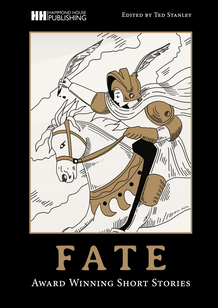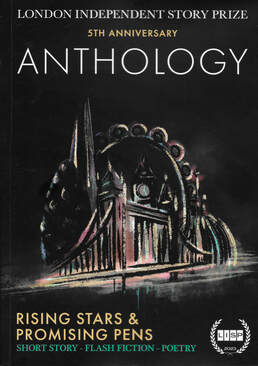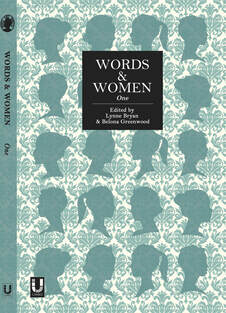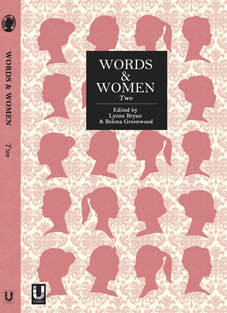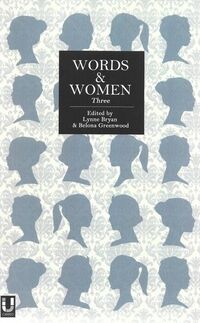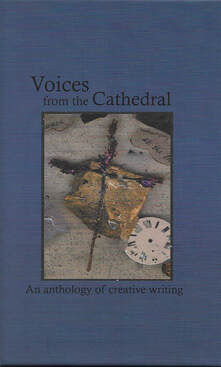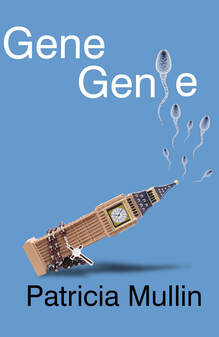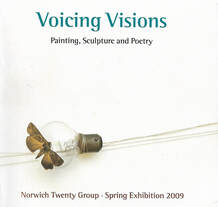LISP Flash Fiction FINALIST, FACTSHEET 5 by Patricia Mullin - Interview.
When did you get into writing?
I wrote my first novel aged 8 or 9, it was thirteen chapters about horses, my passion at the time. I kept journals as a teenager and wrote some bad poetry full of angst: reader I binned them. I was a designer and artist for years and then wrote my first novel prompted by a competition entry and when my children slept, which wasn’t often!
How often do your write? Do you have a writing routine? And what inspires you to write?
I write daily unless I’m running a workshop or teaching or doing admin. In between novels I write short stories and flash fiction. I have an M.A. ‘Writing the Visual’ in Creative Writing and Critical Culture, it was a creative game changer for me.
My ideas are sourced and inspired through art, objects, nature, the half–remembered or the unwittingly disclosed. The starting point for my fiction is invariably visual, juxtaposing the known past with an unsettling, unconscious illusoriness.
How does it feel to have your work recognised?
It’s a thrill; I am delighted to have been a finalist in LISP; what a boost!
I’m previously published in a number of competition anthologies and e-zines commended in the Yeovil, and three times shortlisted for the Bridport Prize.
What is the best and the most challenging thing about writing fiction?
The best?
It’s another world I can enter when this one is too scary, and I love my characters; spending time with them is a joy.
The most challenging?
Interruptions: even well-meant ones and earning a crust in order to keep writing, this inevitably takes me away from my writing.
How did you come up with the idea for your LISP selected story?
I was driving and heard an item on the radio about young people leaving care. I immediately went home and researched online, up popped Fact Sheet 5, the rest I imagined. I have worked in the Prison Service teaching young men who were once children in the care system.
Tips on writing short of flash fiction.
Read as many (competition and other) anthologies as you can. Look for a different angle to a universal theme. Draft and redraft. Put it away for two weeks, re-read and then keep the best and cut the rest.
What’s the best and the most challenging thing about competitions?
The Best
Your writing will be read. If you get shortlisted or win, your work has stood out from hundreds or thousands of entries. The recognition will boost your writing self-esteem and might even attract industry attention.
Challenging
They can be expensive. I set a yearly budget and I consider them a key part of my professional development.
Do you recommend that writers give LISP a go?
Absolutely, it’s been a great experience for me, and I really like the whole philosophy of LISP.
LISP FACTSHEET 5 by Patricia Mullin
Words and Women anthologies one, two and three. I am delighted to have been selected three years running for the Words and Women competition and to have been included in the anthologies with The Sitting, The Siren, and Folding.
Reviews: if you have enjoyed reading Words and Women One and Words and Women Two or Gene Genie the publishers would be really grateful if you would take the time to review the book (s) on Amazon.
Below is a review for Words and Women One, from the Eastern Daily Press 12.04.2014
'The 21 pieces are the winning entries in a new competition launched by Words And Women in 2013. Vivid prose candidly explores every subject imaginable. A daughter discovers decades of infidelity at an exhibition. A young woman faces a terrible diagnosis. A lover mourns her loss through a sensory feast of recollection, and an old man is reminded that the weight of love is exactly 159 mangoes. A child is snared in futuristic sleep, while a life rushes past in a pattern of violence.
This is a book for adventurous readers who like to mix subtlety with verve and originality with imagination.'
Contributors: Deborah Arnander, Sarah Baxter, Susan Dean, Anni Domingo, Layn Feldman, Wendy Gill, Caroline Jackson, Alice Kent, C.G. Menon, Lily Meyer, Patricia Mullin, Karen O’Connor, Judith Omasete, Bridget Read, Dani Redd, Elizabeth Reed, Bethany Settle, Kim Sherwood, Nedra Westwater, Rowan Whiteside, and Lois Williams.
To order your copy go to unthankbooks.com. Also available on Kindle and ipad from Amazon on March 8th. Words and Women One inaugural anthology of women writers in the East (and containing my short story ‘The Sitting’ is available from Unthank Books – click on the link below. To order any of the anthologies go to unthankbooks.com
http://unthankbooks.com/bookshop/index.php?route=product/category&path=59
Reviews: if you have enjoyed reading Words and Women One and Words and Women Two or Gene Genie the publishers would be really grateful if you would take the time to review the book (s) on Amazon.
Below is a review for Words and Women One, from the Eastern Daily Press 12.04.2014
'The 21 pieces are the winning entries in a new competition launched by Words And Women in 2013. Vivid prose candidly explores every subject imaginable. A daughter discovers decades of infidelity at an exhibition. A young woman faces a terrible diagnosis. A lover mourns her loss through a sensory feast of recollection, and an old man is reminded that the weight of love is exactly 159 mangoes. A child is snared in futuristic sleep, while a life rushes past in a pattern of violence.
This is a book for adventurous readers who like to mix subtlety with verve and originality with imagination.'
Contributors: Deborah Arnander, Sarah Baxter, Susan Dean, Anni Domingo, Layn Feldman, Wendy Gill, Caroline Jackson, Alice Kent, C.G. Menon, Lily Meyer, Patricia Mullin, Karen O’Connor, Judith Omasete, Bridget Read, Dani Redd, Elizabeth Reed, Bethany Settle, Kim Sherwood, Nedra Westwater, Rowan Whiteside, and Lois Williams.
To order your copy go to unthankbooks.com. Also available on Kindle and ipad from Amazon on March 8th. Words and Women One inaugural anthology of women writers in the East (and containing my short story ‘The Sitting’ is available from Unthank Books – click on the link below. To order any of the anthologies go to unthankbooks.com
http://unthankbooks.com/bookshop/index.php?route=product/category&path=59
FATE - 'Pale Angel' by Patricia Mullin - Award Winning Short Stories published by Hammond House Publishing 2024 and The London Independent Prize Short Story Prize 5th Anniversary Anthology 2024 Flash Fiction category 'Mire' by Patricia Mullin
Gene Genie was published by The Stone Press in 2005 and is available on Kindle.2012. Patricia received an Arts Council grant for her novel Casting Shadows it was later commended by Susan Buchan in the Yeovil International Literary Prize. Patricia was shortlisted for an Arts Council East Escalator Award 2009. Editor: Voicing Visions anthology of writing inspired by Norwich Cathedral. Pub: Blackshore an imprint of Gatehouse Press. The Sitting, The Siren and Folding were selected for Words and Women One - 2014, Two - 2015 and Three - 2016 competition anthologies Pub: Unthank Press. The Whisk the Spoon and the Grater and Occasion Wear were published on Ink, Sweat and Tears. Three times shortlisted for The Bridport Prize 2016 - Judge: Tessa Hadley. Puponga Beach Bridport Prize, 2019 Judge: Kirsty Logan; Lick shortlisted for the Bridport Prize in 2020 - Judge: The Nostalgia House - Prize winner in West Sussex Mind short story competition 2020. Nell Leyshon. Finalist London Independent Story Prize (Flash Fiction) 2021 - Fact Sheet 5.
Words and Women. Title and Judges: Folding - Emma Healey 2016. The Siren - Sarah Ridgard 2015.The Sitting - Lynne Bryan and Belona Greenwood.2014
The Camera Lies Voicing Visions 2009. Gene Genie by Patricia Mullin. Voices from the Cathedral Edited by Patricia Mullin
Casting Shadows - by Patricia Mullin (Seeking representation.)
'The soul's capricious reporter, memory filters out what hurts, combines the incidents that remain, and then adapts them to the form it wants to remember: memory composes its own truth.' Martha Zamora. From the preface: Frida Kahlo. The Brush with Anguish.
I had wanted to write about memory for some years. This quote from Martha Zamora was the trigger; 'The soul's capricious reporter' seemed particularly close to my feelings about memory with its illusory nature. Casting Shadows is about mistaking memory for truth.
